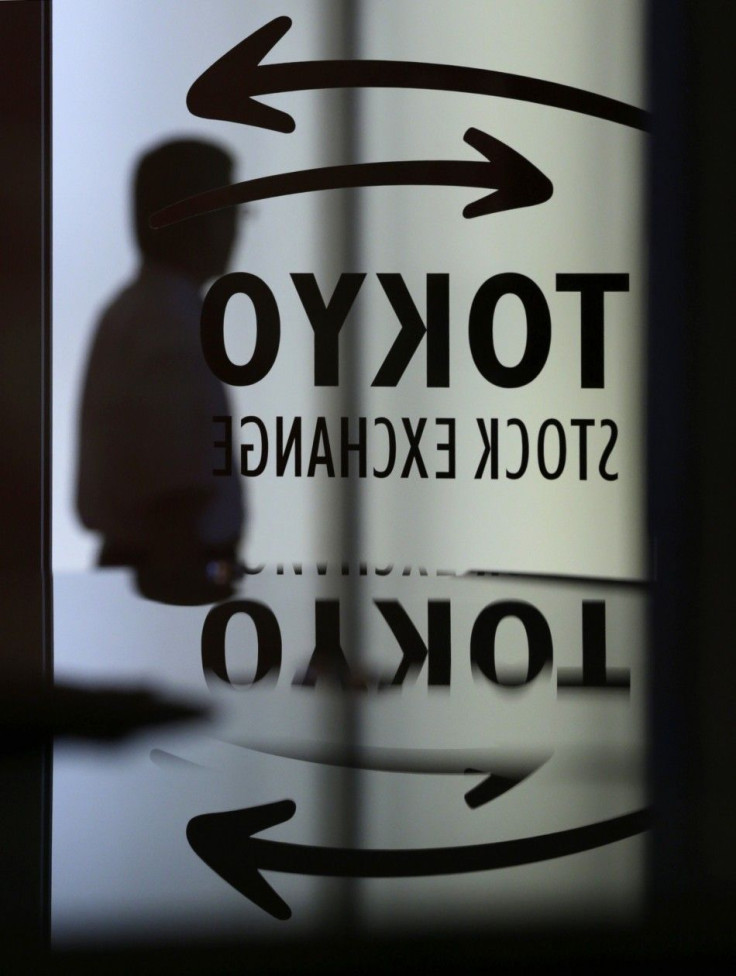Asian Stock Markets Mostly Lower

Asian stock markets mostly declined Tuesday as concerns over the weak corporate earnings continued to weigh on the sentiment.
Chinese Shanghai Composite plunged 0.86 percent or 18.31 points to 2,114.45, South Korea’s KOSPI Composite fell 0.76 percent or 14.78 points to 1,926.81 and Indian benchmark BSE Sensex slipped 0.35 percent while Japanese benchmark Nikkei gained 0.04 percent or 3.54 points to 9,014.25. Markets in Hong Kong are closed for a holiday.
Markets opened on a flat note, tracking modest gains on the Wall Street overnight after reversing the early losses. The U.S. markets declined Monday after heavy equipment maker Caterpillar slashed its 2012 earnings forecast citing the slowing global economy but the last-hour rally in tech sector pushed the Dow and S&P 500 barely back into the green for the session.
Caterpillar, the world’s largest maker of construction and mining equipment, reduced its 2012 forecast for the second time this year and became the latest to meet the earnings expectations but fell short of revenue forecasts.
Of the 123 S&P 500 companies that have reported results so far in this earnings season, 60.2 percent have exceeded analysts' estimates for earnings, but 61 percent have missed on revenue forecasts, according to Thomson Reuters’ data. Earnings for S&P 500 components are expected to decline 2.4 percent from a year ago.
Japanese shares ended flat as losses from utility companies were offset by gains in exporters after the yen fell to a three-month low. The U.S. dollar appreciated strongly against the yen Monday as wider-than-expected September trade deficit raised hopes that the Bank of Japan (BOJ) would soon announce stimulus measures to boost the economic growth momentum.
The Sankei newspaper Tuesday reported that the Japanese government had asked the BOJ to boost asset purchases by an additional 20 trillion yen, which would bring the whole asset purchase program to 100 trillion yen. This has increased speculation that BOJ will opt to ease monetary conditions when its policy board next meets Oct 30. However, Japanese Finance Minister Koriki Jojima denied it.
Official data Monday showed that Japan recorded a trade deficit of 558.4 billion yen ($7 billion) in September compared to a surplus of 288.8 billion yen in the same period last year as exports tumbled at their sharpest pace since last year’s post-earthquake slump. Exports to China tumbled 14.1 percent from a year earlier, the biggest decline since January, as demand for Japanese-branded products declined following a territorial spat with China.
"Generally speaking, expectations for a BOJ easing help push the dollar up against the yen, but the effect on the economy from easing is limited. It's more to do with recent market flows which have been pointing to a weaker yen," Hiroshi Maeba, head of FX trading Japan for UBS in Tokyo, told Reuters.
In Japan, Kansai Electric Power tumbled 12.88 percent and Tokyo Electric Power Co Ltd. fell 1.49 percent while Nikon Corp. gained 1.59 percent and Panasonic Corp. advanced 0.58 percent.
In China, Zhangzhou Pientzehuang Pharmaceutical Co Ltd. plunged 5.24 percent and Tibet Rhodiola Pharmaceutical Holding Co fell 3.11 percent while Shenzhen Hongtao Decoration Co tumbled 9.98 percent after the companies lowered their full-year earnings forecast.
In Seoul, steel makers declined ahead of quarterly earnings from POSCO later Tuesday. On late Monday, rating agency Standard & Poor downgraded its long-term debt rating on POSCO to BBB+ from A-. Hyundai Steel Co. fell 1.71 percent and POSCO declined 2.11 percent while Samsung Electronics Co Ltd. fell 0.15 percent.
© Copyright IBTimes 2024. All rights reserved.




















